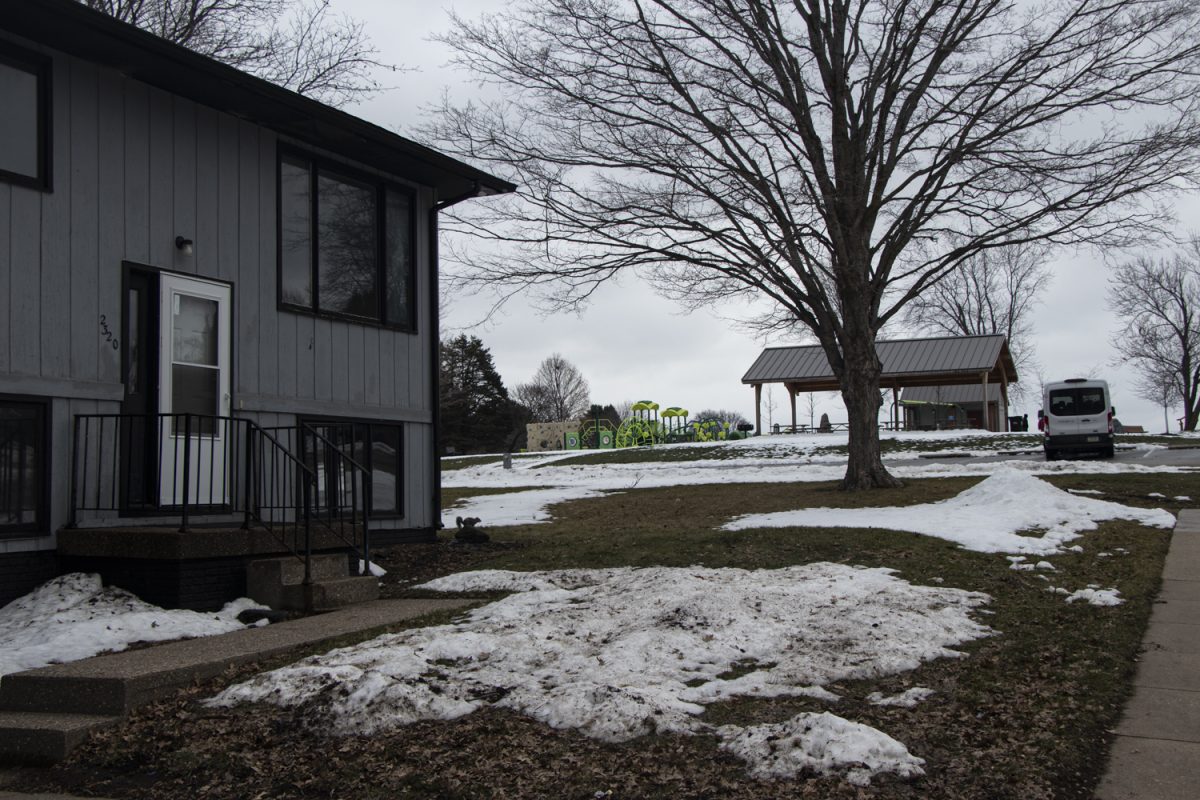The City of Iowa City is considering demolishing an unused duplex near Wetherby Park to create more space for recreational facilities. The demolition would occur in mid-summer.
This project stemmed from the city’s purchase of eight rental duplexes for nearly $2 million in July 2021, according to the Jan. 18 information packet for the city council. The city purchased the properties from a private property owner in the southside neighborhood to renovate and sell them to prospective low-income homeowners at an affordable price.
While renovations have been going smoothly for most of the units, the unused duplex — located at 2318 and 2320 Taylor Drive — has been found to have some challenges in terms of renovating the units and converting them to a single owner-occupied property.
Instead of both sides of the duplex being mirrored, the Taylor Drive property has one unit that is significantly larger than the other, according to the information packet. The smaller unit also has several other issues that could drive down its market value, including it being accessible only by tall outdoor stairs and its laundry facilities being located outside of the property.
Because of these factors, city staff has determined it would be more costly to renovate than other units, and it would still be undesirable even after renovations, as stated in the information packet. Stan Laverman, a senior housing inspector for the city, said staff aim to keep the cost for renovations between $50,000 to $60,000.
This is why city staff deemed it would be more beneficial to demolish the property to create more space for its neighbor, Wetherby Park. The park is located directly next to the Taylor Drive property.
Laverman said as long as there is no disagreement from city councilors on moving ahead with the demolition, it will be completed. He said early discussions indicate that the city council will agree with this choice.
Juli Seydell Johnson, the city’s parks and recreation director, said Wetherby Park serves as a major recreation hub for the south district, and the added space would benefit the neighborhood.
The park’s current amenities include community gardens, a walking trail, basketball courts, restroom facilities, and a playground, said Seydell Johnson. If the Taylor Drive property is demolished, space would be opened to eventually construct a new indoor recreational area that could be used to host community events, she said.
“The park itself is huge with different uses and a lot of use,” Seydell Johnson said. “Anytime we have an opportunity to add space to a park with that many uses, I think that's really helpful.”
The information packet states one of the eight duplexes has just finished being renovated and both of its two units are being purchased. Most of the eight units were still occupied by renters when the city purchased them, so the city waits to do any renovations until the tenants voluntarily move out, said Laverman.
The funding for this specific project dates to when The Nest Iowa City, a student-oriented apartment complex near the Pedestrian Mall, was built in 2021. Geoff Fruin, the city’s manager, said the developers of The Nest were required to pay a fee to the city in exchange for not having to provide affordable housing at the site.
The Nest paid the city $1.8 million, which the city then used to purchase the eight duplexes in the south district and begin its homeownership renovation project, Fruin said.
RELATED: Iowa City Community School District students break ground on affordable housing project
This project is also a part of the South District Investment Partnership Program, which works to purchase and convert duplexes in the Taylor Drive and Davis Street area into affordable homeownership opportunities for residents in the area. According to the program’s website, it has sold six properties so far.
The city has run programs like the one in the south district in the past. Around the 2010s, the city did a similar project, called UniverCity, but it was instead focused on the downtown area of Iowa City. The city no longer runs this program because it ran into troubles with finding properties that it could affordably convert, so it shifted focus to the south district, Fruin said.



